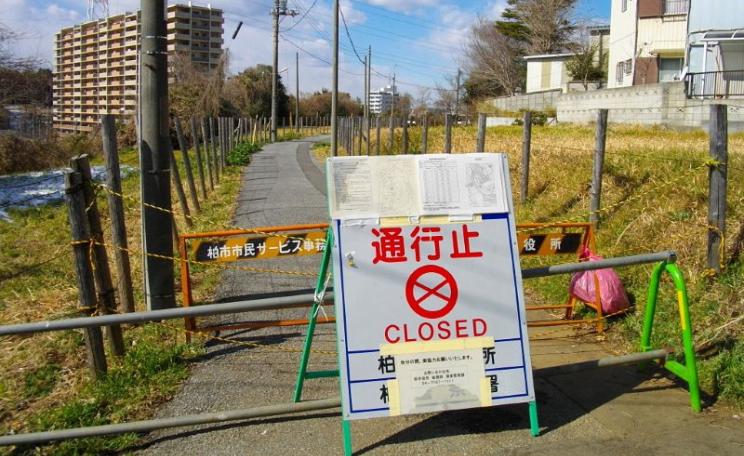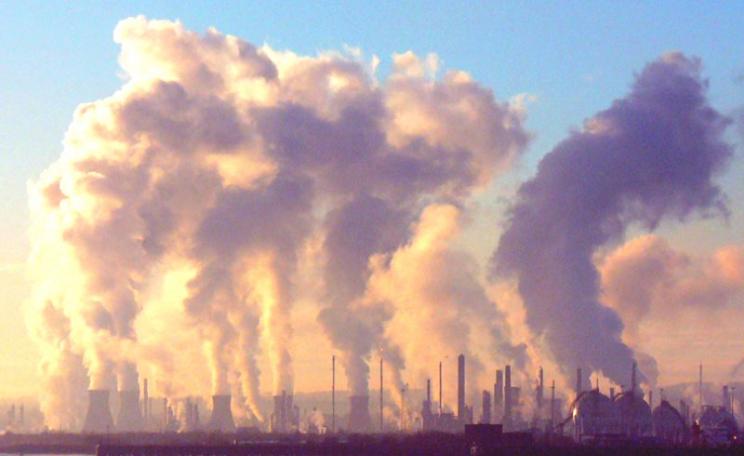The language touted as an 'exception' to defend health, environmental and other public-interest safeguards from TPP challenges is a carbon copy of past provisions that have been proven ineffective in more than 97% of cases in the past 20 years.
The text of the Trans-Pacific Partnership can now be viewed by the public, thanks to the New Zealand government, and it is every bit as bad as activists have been warning.
The TPP, if enacted, promises a race to the bottom: An acceleration of jobs to the countries with the lowest wages, the right of multi-national corporations to veto any law or regulation their executives do not like, the end of your right to know what is in your food, higher prices for medicines, and the subordination of Internet privacy to corporate interests.
There is a reason it has been negotiated in secret, with only corporate executives and industry lobbyists consulted and allowed to see the text as it took shape.
The threat from the TPP extends beyond the 12 negotiating countries, however - the TPP is intended to be a 'docking' agreement whereby other countries can join at any time, provided they accept the text as it has been previously negotiated.
Eliminating protections worldwide
Moreover, the TPP is a model for two other deals: the Transatlantic Trade and Investment Partnership (TTIP) between the United States and the European Union, and the Trade In Services Agreement (TISA), an even more secret 'free trade' deal being negotiated among 50 countries that would eliminate any controls on the financial industry.
The elimination of protections is precisely what US multi-national corporations intend for Europe by replicating the terms of the TPP in the TTIP, a process made easier by the anti-democratic nature of the European Commission, which is negotiating for European governments.
Already, higher Canadian standards in health, the environment and consumer protections are under sustained assault under the North American Free Trade Agreement. The TPP is an unprecedented corporate giveaway, going well beyond even NAFTA, which has hurt working people and farmers in Canada, the US and Mexico.
More than 300,000 jobs in the US alone may be eliminated by the passage of the TPP.The Wall Street Journal, in an article celebrating victory for multi-national capital, nonetheless reported that 330,000 manufacturing jobs would be lost, basing this estimate on an estimated US$56 billion increase in the national trade deficit.
The language touted as an 'exception' to defend health, environmental and other public-interest safeguards from TPP challenges is a carbon copy of past provisions that have been proven ineffective in more than 97% of cases in the past 20 years.
That forecast is based on a US Department of Commerce estimate that 6,000 jobs are lost for every $1 billion of added trade deficit.
Bad news on both sides of the Pacific
The Canadian union Unifor estimates that 20,000 Canadian jobs in auto manufacturing alone are at risk from TPP. Canada will also be forced to open its dairy and poultry industries. There is fear that Canadian dairy farming may collapse and the outgoing Harper régime promised $4.3 billion to compensate farmers from expected losses.
The Australian Fair Trade and Investment Network, while acknowledging that community pressure forced governments to resist some of the most extreme measures, worries that the US concession to Australia that the extension of monopolies on biological medications will be five years rather than eight will prove ephemeral.
The group reports that the text "refers to eight years and to 'other measures' which would 'deliver a comparable market outcome,' and to a future review. It is not clear how this will be applied in Australia." The US will retain its 12-year exclusivity period, while other countries can choose five or eight years, so there will likely be continued pressure from pharmaceutical companies for all to adopt a longer period.
A product would not have to be produced locally to qualify as a locally made product. As much as two-thirds of an automobile's components could be manufactured in China, for example, and it would still qualify for preferential treatment if one-third is made in any TPP signatory country. But 'buy local' rules would become illegal, including for government procurement.
Health and environment 'protections' unenforceable
There are no enforceable provisions for environmental, health, safety or labor protection. Public Citizen, in its analysis of the TPP text, reports:
"The language touted as an 'exception' to defend countries' health, environmental and other public-interest safeguards from TPP challenges is nothing more than a carbon copy of past US free trade language that 'reads in' to the TPP several World Trade Organization (WTO) provisions that have already been proven ineffective in more than 97 percent of its attempted uses in the past 20 years to defend policies challenged at the WTO.
"In two decades of WTO rulings, [the articles purporting to protect laws necessary to protect human, animal or plant life or health] have only been successfully employed to actually defend a challenged measure in one of 44 attempts."
The ratio under TPP is likely to be even lower as the TPP promises the most extreme rules in favor of corporations of any 'free trade' deal. Even the extremely weak 'exception' does not apply to the entire investment chapter of the TPP.
Precedent here is bad - as the secret tribunals that decide cases brought by corporations against governments hand down their one-sided agreements, these decisions become a floor for the next decision, pushing the interpretation further in favor of corporate domination.
Democracy canceled by corporate power
Under the TPP, corporations are elevated to the level of national governments and, in practice, could be said to be elevated above governments. The TPP text mandates that "customary international law" be applied for the benefit of an "investor" - that law is not found in any statutes, but rather has been established by previous decisions of secret tribunals interpreting NAFTA and other 'free trade' deals.
Worse, the TPP places essentially no limits on who qualifies as an 'investor' eligible to be compensated for potential profits that may not materialize due to a regulation or safety rule.
Although the rules codifying benefits for multi-national capital are written in firm language, there is no such language for protections. The Sierra Club reports that the TPP mandates that only one of the seven environmental agreements found in previous 'free trade' deals be fulfilled, an alarming development as previous environmental requirements have been routinely ignored. Among the many deficiencies in the TPP, the Sierra Club said:
"Rather than prohibiting trade in illegally taken timber and wildlife - major issues in TPP countries like Peru and Vietnam - the TPP only asks countries 'to combat' such trade. To comply, the text only requires weak measures, such as 'exchanging information and experiences', while stronger measures like sanctions are listed as options ...
"Rather than obligating countries to abide by [rules to] prevent illegally caught fish from entering international trade, the TPP merely calls on countries to 'endeavor not to undermine' [fisheries-management protocols] - a non-binding provision."
Forbidding action on climate change
The TPP fails to even mention the words 'climate change'! More than 9,000 corporations would be newly empowered to sue governments because a law or regulation hurt their profits. Worse, the TPP would mandate that the US Department of Energy automatically approve all exports of liquified natural gas to all TPP countries.
This would guarantee more fracking. Already under NAFTA the province of Québec has been sued in an effort to overturn its fracking moratorium. That may only be the beginning, according to 350.org:
"The agreement would give fossil fuel companies the extraordinary ability to sue local governments that try and keep fossil fuels in the ground. If a province puts a moratorium on fracking, corporations can sue; if a community tries to stop a coal mine, corporations can overrule them.
"In short, these rules undermine countries' ability to do what scientists say is the single most important thing we can do to combat the climate crisis: keep fossil fuels in the ground."
You'll have no right know what you eat
Food safety would fare no better. The TPP's race to the bottom would require that the lowest inspection standards of any country be applied, forcing a lowering of other countries' standards, and end protections against untested genetically modified organisms (GMOs) in your food. Food & Water Watch reports:
"The TPP includes a new provision designed to second-guess the government inspectors who monitor food imports ... The food and agribusiness industry demanded - and received - stronger [rules] that make it harder to defend domestic food safety standards from international trade disputes ...
"Agribusiness and biotech seed companies can now more easily use trade rules to challenge countries that ban GMO imports, test for GMO contamination, do not promptly approve new GMO crops or even require GMO labeling.
"The TPP gives the food industry a powerful new weapon to wield against the nationwide movement to label GMO foods. The language in the TPP is more powerful and expansive than other trade deals that have already been used to weaken or eliminate dolphin safe tuna and country of origin labels."
Forcing the corporate takeover of health
Health care will also come under direct assault, forcing other countries more toward the US system, under which health care is a privilege for those who can afford it rather than a human right. Government programs to hold down the cost of medications are targeted for elimination in the TPP. Doctors Without Borders / Médecins Sans Frontières, which has been sounding the alarm for years, said:
"TPP countries have agreed to United States government and multinational drug company demands that will raise the price of medicines for millions by unnecessarily extending monopolies and further delaying price-lowering generic competition ... the TPP will still go down in history as the worst trade agreement for access to medicines in developing countries, which will be forced to change their laws to incorporate abusive intellectual property protections for pharmaceutical companies.
"For example, the additional monopoly protection provided for biologic drugs will be a new regime for all TPP developing countries. These countries will pay a heavy price in the decades to come that will be measured in the impact it has on patients."
We still have time to stop it!
The text of the TPP is subject to approval by legislative bodies in various countries, and while time is limited and the approval process is streamlined to facilitate approval in several of them, the Trans-Pacific Partnership can be defeated. This is not a national issue.
Working people will be hurt everywhere, with jobs disappearing in developed countries and sweatshop misery for other countries - this is why multi-national capital, where ever it is based, is pushing for the TPP.
If it is to be stopped, it will be through the combined activity of activists on both sides of the Pacific. We have no time to lose.
Petition: 'Say no to corporate power grabs - reject the Trans-Pacific Partnership' (350.org).
Pete Dolack is an activist, writer, poet and photographer, and writes on Systemic Disorder. His forthcoming book 'It's Not Over: Lessons from the Socialist Experiment', a study of attempts to create societies on a basis other than capitalism, will be published by Zero Books in late 2015.
This article was originally published on Systemic Disorder.
Also by Pete Dolack: 'There is still time to defeat the Trans-Pacific Partnership'.







